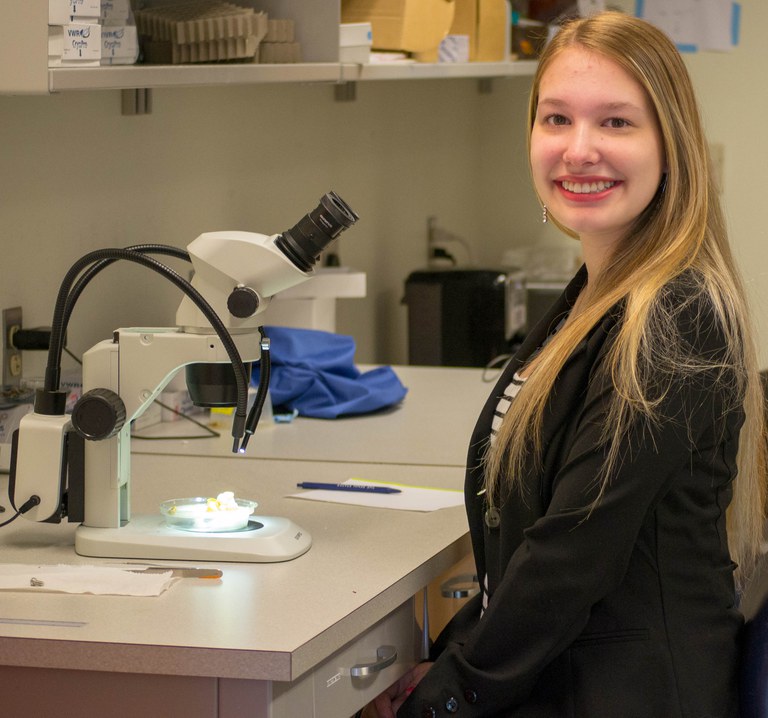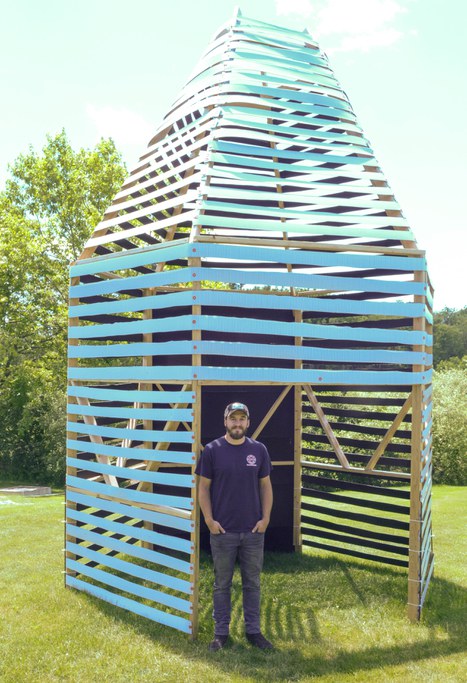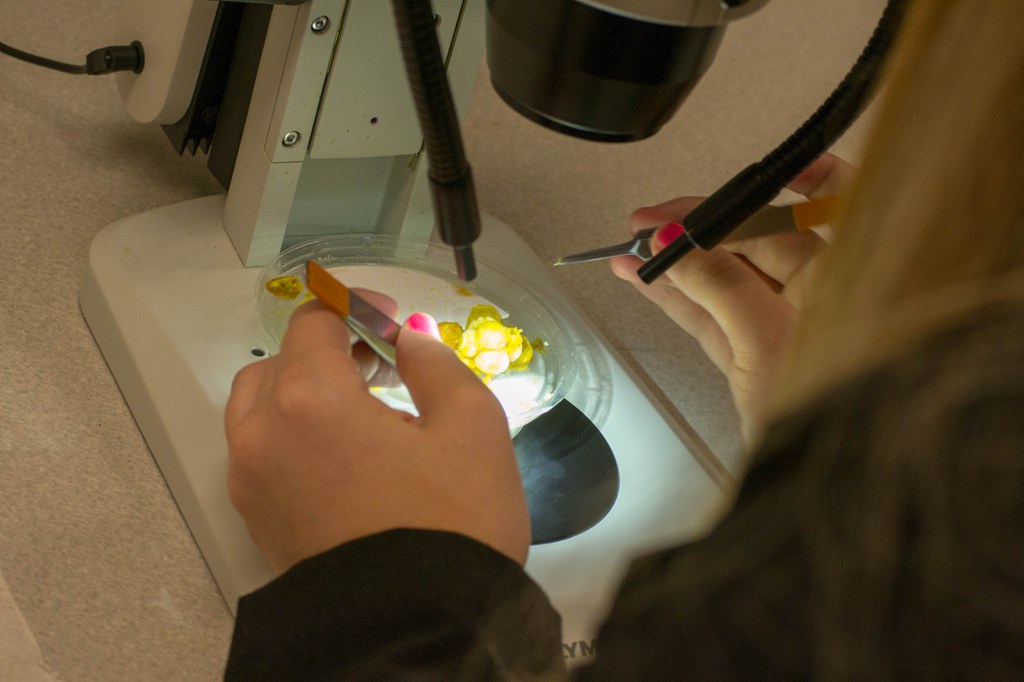Posted: June 21, 2019
To help catalyze research and education in bee health, Dutch Gold Honey, based in Lancaster County, PA, endowed an Undergraduate Scholarship in Penn State College of Agricultural Sciences in 2010. This yearly award pairs students in the College of Agricultural Sciences with faculty mentors from the Penn State Center for Pollinator Research. The 2019 Dutch Gold Scholarship has been awarded to two students, Jacklyn Kiner and Matthew Poorman, whose projects seek to improve methods for bee management and public learning about bees.

Dutch Gold Undergraduate Award 2019 recipient, Jacklyn Kiner sits next to a bumblebee colony to be dissected under a dissecting microscope.
Kiner, a rising Junior majoring in Veterinary and Biomedical Sciences, is interested in helping declining bumble bee populations. More than half of studied U.S. bumble bee species are showing declines, including Bombus pensylvanicus, a species which used to be widespread in Pennsylvania and is now rarely found here. Kiner will be working with Ph.D candidate Erin Treanore and Dr. Etya Amsalem to investigate how diets with differing pollen concentrations impact bumble bee queen reproduction. She hopes that her research will add to the growing knowledge base of how nutrition affects bee survival, and could lead to improved diets for managed bumble bees or pollinator-friendly plantings for wild bumble bees. Jacklyn's research supports her broader scientific interests in understanding the consequences that external factors (like nutrition) can have on whole organisms and their communities.
Poorman is a rising Senior at Penn State who began beekeeping two years ago and wants to integrate this increasingly important hobby with his passion for science to create a dynamic experience. Through his project building an observation hive pavilion for the new Pollinators' Garden at the Arboretum at Penn State, Poorman wants to fulfill 3 goals: communicate the "science of bees" to the public, promote non-traditional learning, and (this is a more personal goal, he admits) increase his own foothold in bee research by participating in and advocating for honey bee research. The proposed "Bee Hut" will be an 18-foot pavilion with a modified Langstroth hive that allows observers to see the inner workings of the honey bee colony without interfering with the colony's biology or management. Poorman is working with Kate Anton and Dr. Harland Patch to construct and test out his "Bee Hut" this summer.

Rising senior, Matthew Poorman stands next to the 18-foot prototype "Bee Hut." The pavilion design is modelled after old skeps, which were baskets used to house honey bees before Langstroth hives.

Rising junior, Jacklyn Kiner dissecting a bumble bee microcolony. She is investigating the role of nutrition on bumble queen reproduction.
For undergraduate students such as Kiner and Poorman, this $3000 scholarship gives the unique opportunity to work on self-selected projects at the world-renowned Center for Pollinator Research. Both awardees are eager to use the knowledge and experiences they will gain with their respective projects to shape the future of pollinator research and education, and with the support of the Penn State Center for Pollinator Research along with the Dutch Gold Award, there is no doubt that they will both make a lasting impact on Penn State and pollinators around the world.
This article was written by Tyler Jones, a graduate student in the Integrative Pollinator Ecology Graduate Training Program at Penn State.

